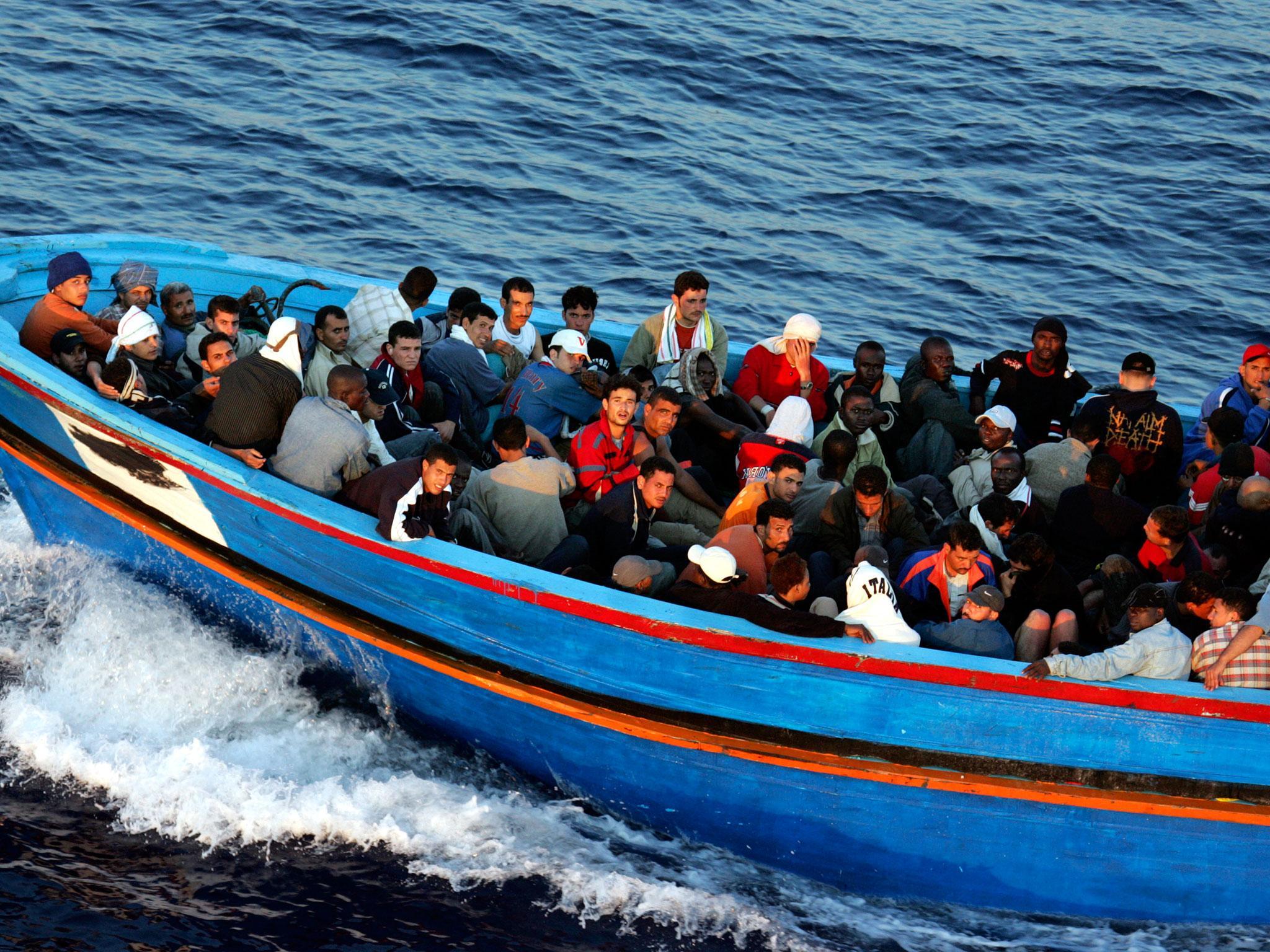Horrific phone calls reveal how Italian Coast Guard let dozens of refugees drown
Previously unheard audio shows Italian authorities telling the sinking migrants to 'call Malta' - despite there being an Italian naval vessel just a few miles away

Horrific phone calls which reveal how the Italian Coast Guard let dozens of refugees drown in the Mediterranean Sea in 2013, have been obtained by an Italian newspaper.
In previously unheard audio, Italian authorities tell a caller from the sinking refugee ship to "call Malta," despite an Italian Navy patrol boat being miles away.
As the fishing boat began to take on water, it was around 61 miles away from the Italian island of Lampedusa and within the territorial waters of Malta, which was 118 miles away.
During the distress call, released by the Italian magazine L'Espresso, a man who identifies himself as a Syrian doctor named Mohamed Jammo can be heard asking for help as he tells authorities the boat is taking on water and sinking.
"Please hurry," Mr Jammo repeats. "The boat is going down."
When he later calls the Coast Guard to ask if they had sent anyone, an operator tells Mr Jammo to call Malta.
"Because you are near Malta," the man explained. "Call Malta directly very quickly, they are close, OK?"
Mr Jammo then called the Italian Coast Guard again to tell them he had called Malta and been told the boat was closer to Lampadusa than Malta.
"We are dying, please," he added.
But the operator repeated the instruction, telling him: "You have to call Malta, sir."
During the ordeal, the Italian Navy's patrol boat Libra was awaiting orders between 10 to 19 miles away.
In a call to the operations room of the Armed Forces of Malta, an Italian coast guard operator voiced his concern that if the patrol boat was dispatched it would have to transfer the refugees to the nearest coast, which would have been Lampedusa.
"I think it is not the best way to operate," he explains, going on to say it would mean the loss of an "asset in the area" to spot other "targets," presumably refugee boats.
The Maltese authorities clearly told the Italian Coast Guard their navy's boat was the closest to the refugees.
Five hours after Mr Jammo's initial call to the Italian Coast Guard, the fishing boat capsized, sending over 260 people, including 60 children, into the Mediterranean Sea.
There is yet to be an official investigation into the 11 October sinking, with reports stating at least 34 refugees were confirmed dead.
Around 147 survivors were taken to Malta and a further 56 taken to Italy.
Some of the Syrian refugees reported the boat had been fired upon by Libyan militiamen during a trafficking gang dispute.
The Independent has contacted the Italian Coast Guard for comment.
After the tragedy, Maltese Prime Minister Joseph Muscarat complained about a lack of action from other European countries.
"As things stand we are building a cemetery within our Mediterranean Sea," he warned.
Join our commenting forum
Join thought-provoking conversations, follow other Independent readers and see their replies
0Comments